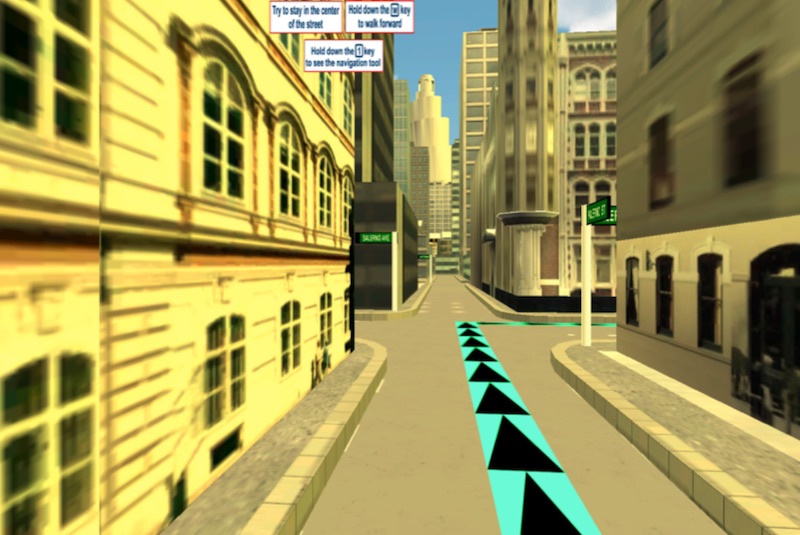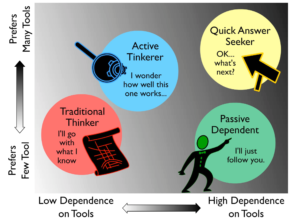It’s been said that technology dumbs us down. Many people would agree but how true is this? And, if it is true, can it be measured? What does “dumb” refer to anyway? IQ tests have long fallen out of favor so how do we go about testing this? By building Augmented Reality navigation tools as representative of emerging technologies and using mental maps as a particular metric of our cognitive abilities, I was able to conduct studies that quantified the relationship between mobile AR technology use and weakened mental capacity. This knowledge can serve to guide us in designing digital technology that enhances our abilities rather than creating dependencies.
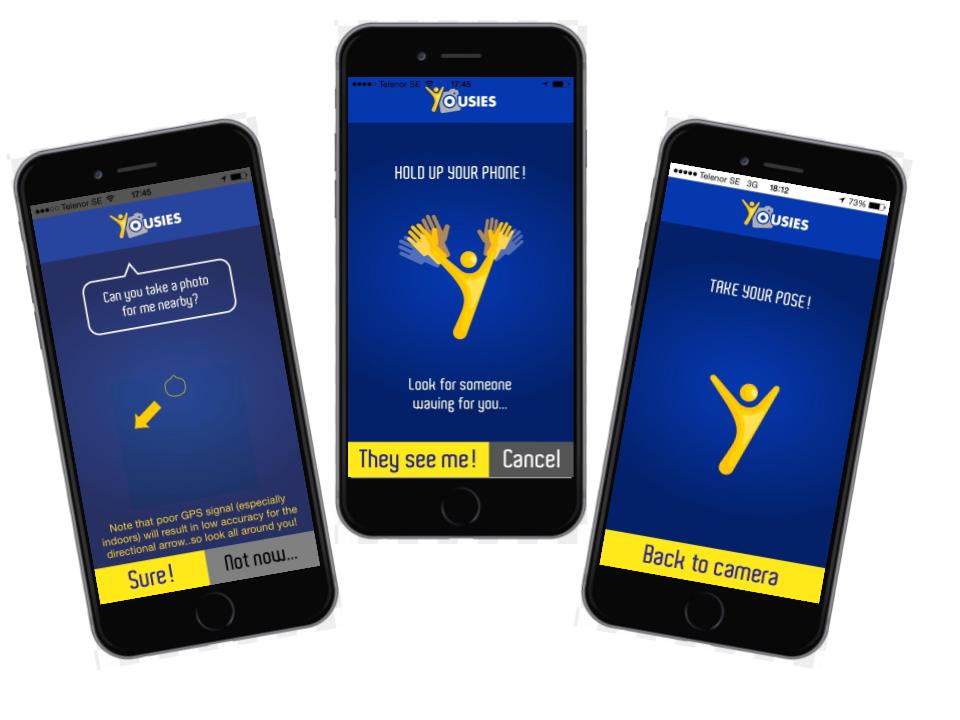

We like to think that we know ourselves well enough to judge how we will act in typical low pressure social situations. We tend to be very generous with ourselves, though, and so may misjudge our actual abilities. When digital technology is in the mix, we may miscalibrate even more. I built an iPhone app that crowdsourced selfie pictures (yeah, weird concept but it’s cool) to see how people perceived themselves acting and how they actually did act, both digitally and physically, with others. In this way, we can design systems that would support smooth interaction instead of creating awkward social situations.
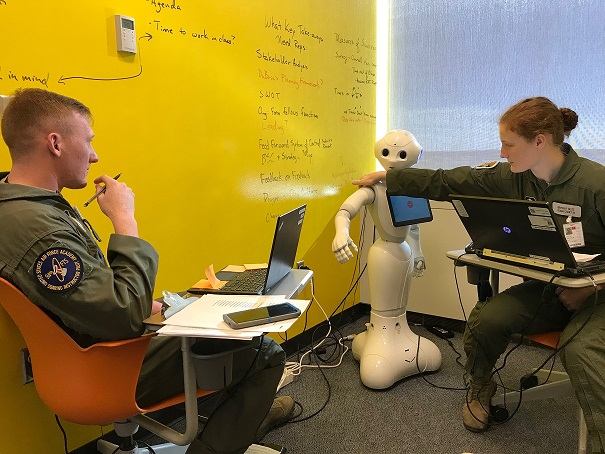
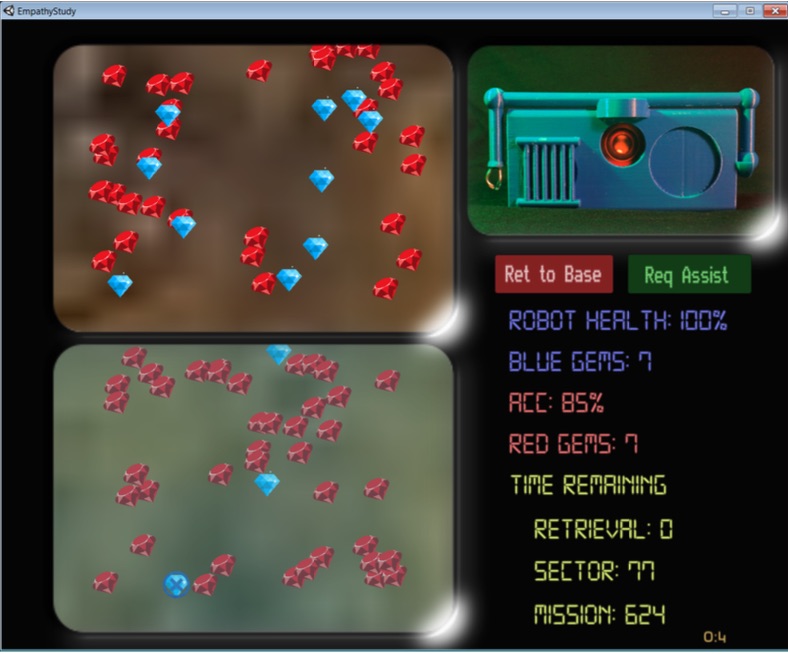
Movies often show people and robots working together and joking around like buddies. In reality, we generally regard robots as tools or toys. Thinking of them as equal to other human beings would require one to suspend disbelief. Will we ever make the transition to having robots as teammate buddies or do we need to wait for robots to gain sentience? I ran some studies of a simulated mission with a robot teammate that yielded evidence of how we empathize with robots more as teammates than as tools.
My research was originally driven by my combined interest in pursuing the creative arts which led me to an interest in visualization which, in turn, led to my interest in designing user interfaces. That opened up the world of user experience for me which put me on the path to understand the human factors of computer interaction and how the fundamental psychological and sociological aspects of our cognition, perception, and behavior affect how we use technology and how technology affects us.
As technology becomes more pervasive and ubiquitous, our interaction will increasingly blend with actions and behavior that we naturally make with our surroundings and the study of Human Computer Interaction will evolve to a grander understanding of general interaction between our organic nature and the digital tools that are seamlessly integrated with our environment. My research is directed at building a fundamental understanding of how to better design for our underlying natural selves. My full list of publications can be found on Google Scholar.
- Wen, James and Colley, Ashley. Hybrid Online Survey System with Real-Time Moderator Chat. 21th International Conference on Mobile and Ubiquitous Multimedia, Lisbon, 2022. Accepted for publication.
- Ward, Matthew and Wen, James and Head, James and Helton, William S. Designing Wearable Interfaces for People Who Have Hard Jobs. Book chapter from Human Performance in Automated and Autonomous Systems: Current Theory and Methods. Mustafa Mouloud and Peter A. Hancock, Editors. CRC Press, Taylor & Francis Group, 2020.
- Wen, James and Stewart, Amanda and Billinghurst, Mark and Tossell, Chad. Band of Brothers and Bolts: Caring About Your Robot Teammate. IEEE/RSJ International Conference on Intelligent Robots and Systems (IROS), Madrid, 2018, pp. 1853-1858.
- Wen, James and deVisser, Ewart and Tossell, Chad. Bridging Sensemaking and Situation Awareness through Human-Machine Teams. Supplemental Proceedings of the ACM Computer Human Interaction Conference, 2018.
- Wen, James and Stewart, Amanda and Billinghurst, Mark and Tossel, Chad.. TEAMMATE: A Scalable System for Measuring Affect in Human-Machine Teams. 991-996. 27th IEEE International Symposium on Robot and Human Interactive Communication, 2018.
- Wen, James and Stewart, Amanda and Billinghurst, Mark and Dey, Arindam and Tossell, Chad and Finomore, Victor. He Who Hesitates is Lost (…in Thoughts over a Robot). Proceedings of the American Psychology Association Technology, Mind, and Society Conference, 2018.
- Wen, James and Unluer, Ayça. Redefining the Fundamentals of Photography with Cooperative Photography. Proceedings of the 14th International Conference on Mobile and Ubiquitous Multimedia, 2015.
- Wen, James and Unluer, Ayça. Fun, Cool…And Awkward: Preliminary Reactions to Cooperative Photographyhttps://dl.acm.org/doi/abs/10.1145/2542242.2542246. Proceedings of the 17th Int’l Conference on Human-Computer Interaction with Mobile Devices and Services, 2015.
- Helton, William S. and Wen, James and Finkbeiner, Kristin. Cornering Law: The Need for Further Research and Development. Proceedings 19th Triennial Congress of the IEA, Melbourne, 2015.
- Wen, James. Communicating with the Outside World Through Surreptitious Wearable Systems. Proceedings of the 2015 Workshop on Wearable Systems and Applications, 2015.
- Wen, James. Getting Things Started in Cooperative Photography. Proceedings of the 18th ACM Conference Companion on Computer Supported Cooperative Work, 2015.
- Wen, James and Helton, William S. and Billinghurst, Mark. Fighting Technology Dumb Down: Our Cognitive Capacity for Effortful AR Navigation Tools. Human-Computer Interaction: Applications and Services. Springer-Verlag, 2014.
- Wen, James and Deneka, Agnes and Helton, William and Billinghurst, Mark. Really, It’s for Your Own Good…Making Augmented Reality Navigation Tools Harder to Use. Proceedings of the Extended Abstracts of the 32nd Annual ACM Conference on Human Factors in Computing Systems, 2014.
- Wen, James and Deneka, Agnes and Helton, William S. and Dünser, Andreas and Billinghurst, Mark. Classifying Users of Mobile Pedestrian Navigation Tools. Proceedings of the 25th Australian Computer-Human Interaction Conference: Augmentation, Application, Innovation, Collaboration, 2013.
- Wen, James and Helton, William S. and Billinghurst, Mark. If Reality Bites, Bite Back Virtually: Simulating Perfection in Augmented Reality Tracking. Proceedings of the 14th Annual ACM SIGCHI_NZ Conference on Computer-Human Interaction, 2013.
- Wen, James and Helton, William S. and Billinghurst, Mark. A Study of User Perception, Interface Performance, and Actual Usage of Mobile Pedestrian Navigation Aides. Proceedings of the 57th Annual Human Factors and Ergonomics Society Meeting, 2013.
- Dünser, Andreas and Billinghurst, Mark and Wen, James and Lehtinen, Ville and Nurminen, Antti. Exploring the use of handheld AR for outdoor navigation. Computer and Graphics, Vol 36, No. 8, 2012.
- Dünser, Andreas and Billinghurst, Mark and Wen, James and Lehtinen, Ville and Nurminen, Antti. Handheld AR for Outdoor Navigation. Proceedings of the 13th International Conference on Human-Computer Interaction with Mobile Devices and Services, 2011.
